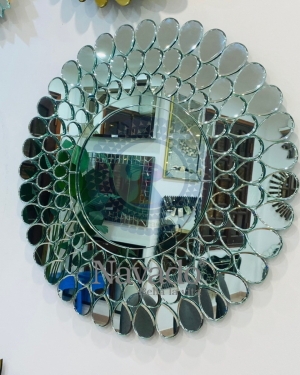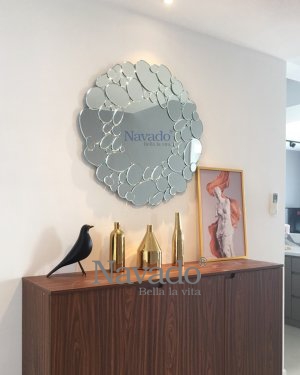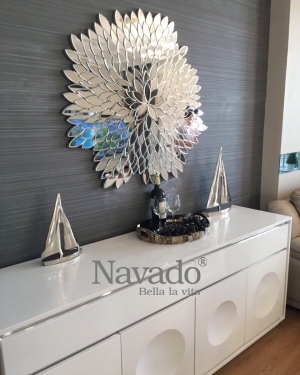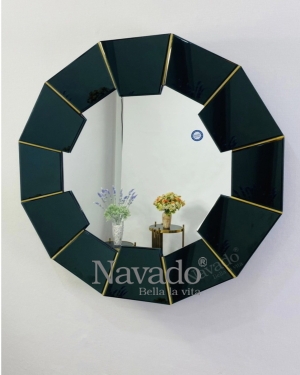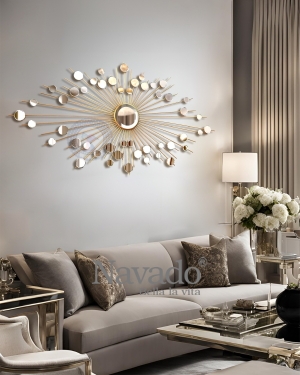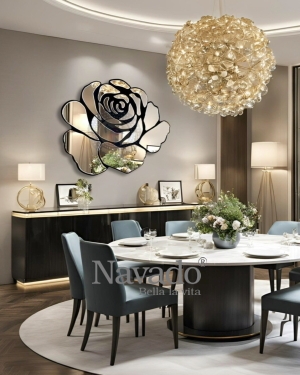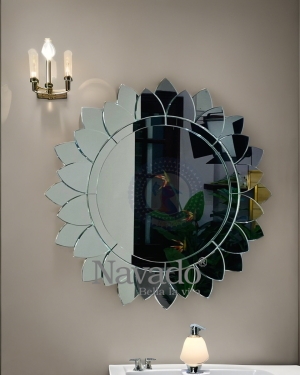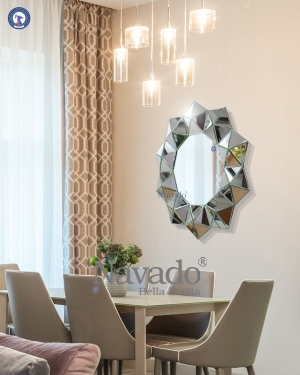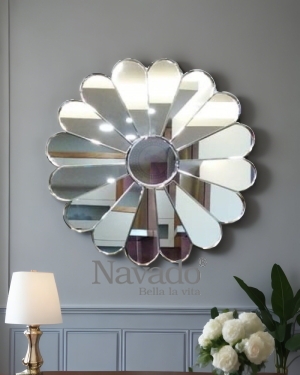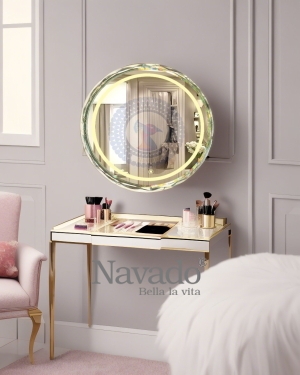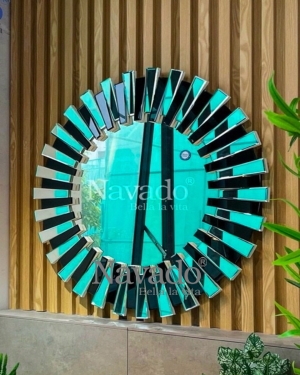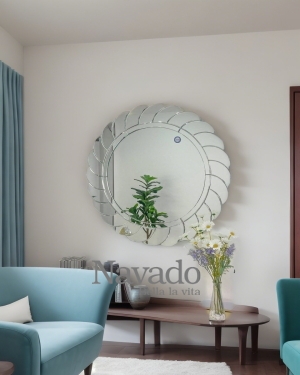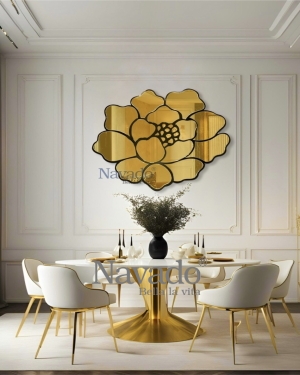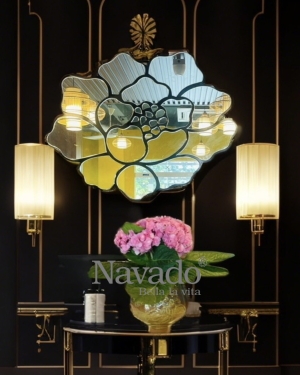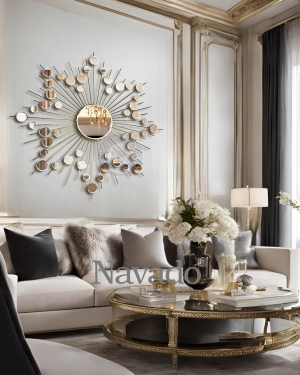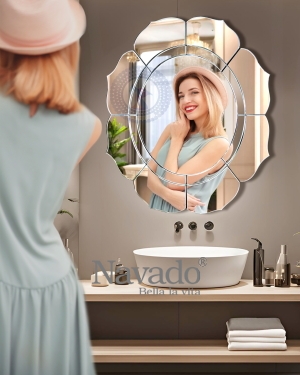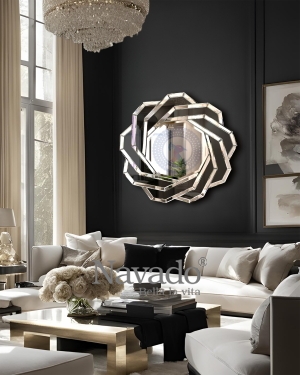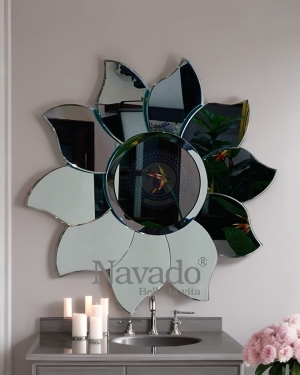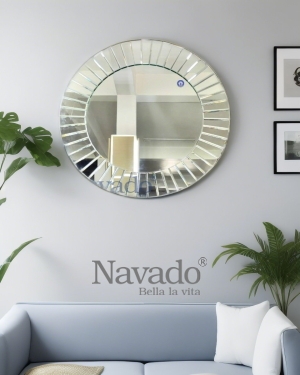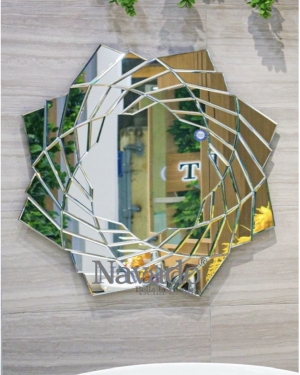For high-end interior design, selecting the right wall mirror can elevate the space's aesthetic and functionality. Here are a few recommendations for luxurious wall mirrors that can enhance any high-end interior:
Price range
Filter by
Price range
Navado luxury decorative wall mirrors
Mirrors play a crucial role in interior decoration, offering both functional and aesthetic benefits. Here are several reasons why mirrors are important in interior design:
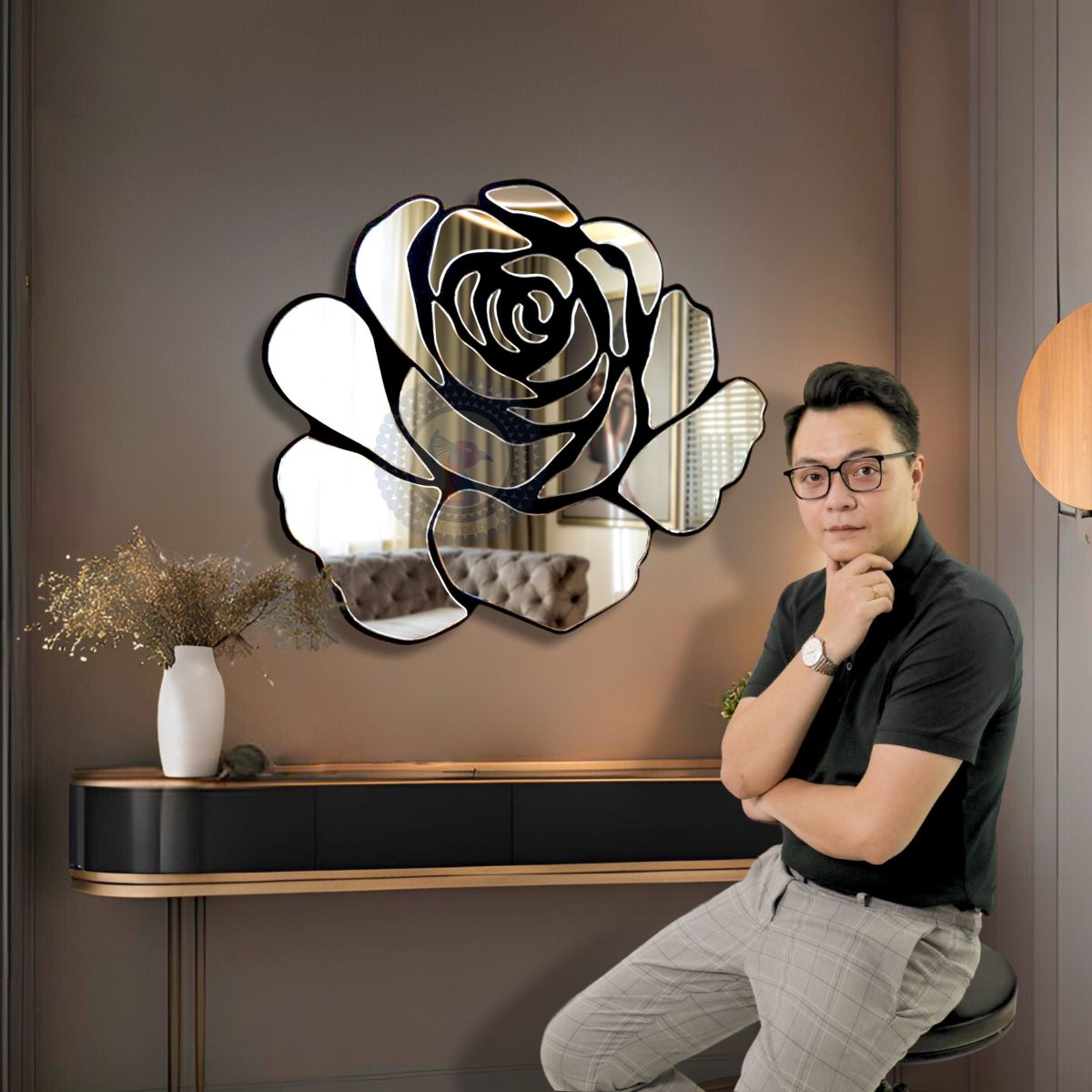
1. Enhancing Space:
- Illusion of Space: Mirrors can make small spaces appear larger by reflecting light and creating a sense of depth. This is particularly useful in compact rooms or narrow hallways.
- Room Definition: Strategically placed mirrors can help define areas within a room, such as highlighting a seating area or creating a focal point.
2. Increasing Light:
- Natural Light Amplification: Mirrors reflect natural light, brightening up dark areas and making spaces feel more inviting.
- Artificial Light Enhancement: Placing mirrors near light sources can enhance the brightness of a room, making it appear more vibrant and dynamic.
3. Aesthetic Appeal:
- Decorative Element: Mirrors come in various shapes, sizes, and styles, serving as beautiful decorative elements that can complement and enhance the overall decor theme.
- Artistic Expression: Mirrors with intricate frames, unique designs, or artistic features can serve as statement pieces, adding character and personality to a space.
4. Functionality:
- Practical Use: Mirrors are essential for daily activities such as grooming, dressing, and applying makeup. They provide a practical function in bathrooms, bedrooms, and dressing rooms.
- Visual Clarity: High-quality mirrors ensure clear reflections, making them reliable for personal use and adding a sense of precision and detail to the decor.
5. Creating Focal Points:
- Eye-Catching Displays: Mirrors can be used to create stunning focal points in a room. For example, a large decorative mirror above a fireplace or a statement mirror in an entryway can draw attention and set the tone for the space.
- Artistic Groupings: Arranging multiple mirrors in a gallery-style display can create a visually appealing and artistic focal point on a wall.
6. Balancing Decor:
- Symmetry and Balance: Mirrors can be used to achieve symmetry in a room's design. Placing identical mirrors on either side of a central piece, like a sofa or bed, can create a balanced and harmonious look.
- Complementing Design Elements: Mirrors can complement other design elements, such as artwork, furniture, and lighting fixtures, by reflecting their beauty and enhancing their impact.
7. Versatility:
- Adaptability: Mirrors are versatile and can fit into various design styles, from modern and minimalist to classic and ornate.
- Multiple Uses: They can be used in different rooms and for various purposes, making them a flexible choice for interior decoration.
8. Psychological Impact:
- Sense of Openness: Mirrors can make a space feel more open and less confined, contributing to a more comfortable and pleasant environment.
- Mood Enhancement: By reflecting light and enhancing the brightness of a room, mirrors can positively impact the mood and atmosphere, making spaces feel more uplifting and cheerful.
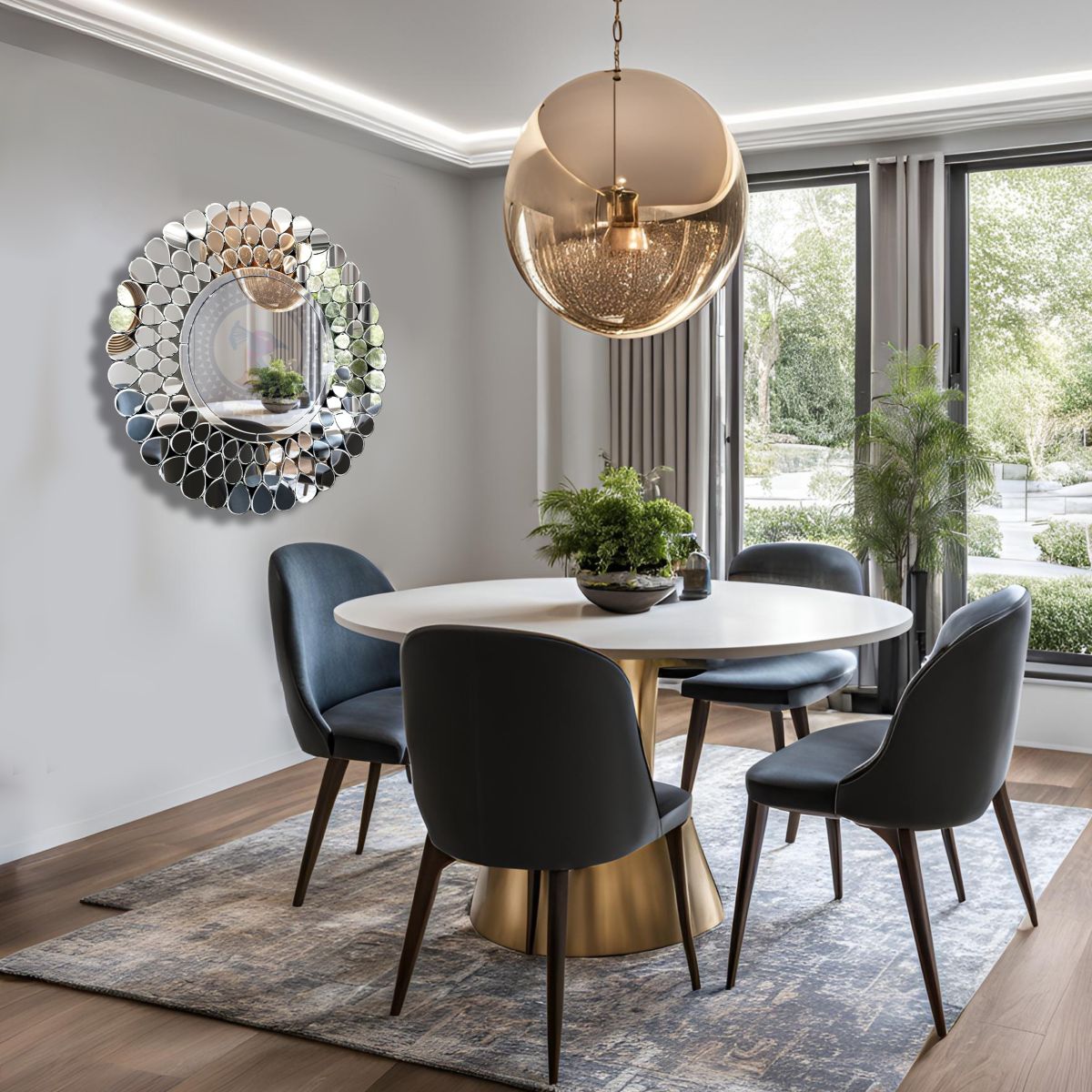
Tips for Using Mirrors in Interior Decoration:
- Strategic Placement: Position mirrors opposite windows or light sources to maximize their reflective benefits.
- Scale and Proportion: Choose mirrors that fit the scale and proportion of the room. An oversized mirror can make a bold statement, while a series of smaller mirrors can add subtle elegance.
- Frame Selection: Select frames that complement the room's decor. Ornate frames can add a touch of luxury, while minimalist frames can keep the focus on the reflection.
- Grouping: Experiment with grouping mirrors of different shapes and sizes to create an interesting visual effect.
Mirrors are not just functional objects; they are versatile design tools that can transform the look and feel of any interior space.

